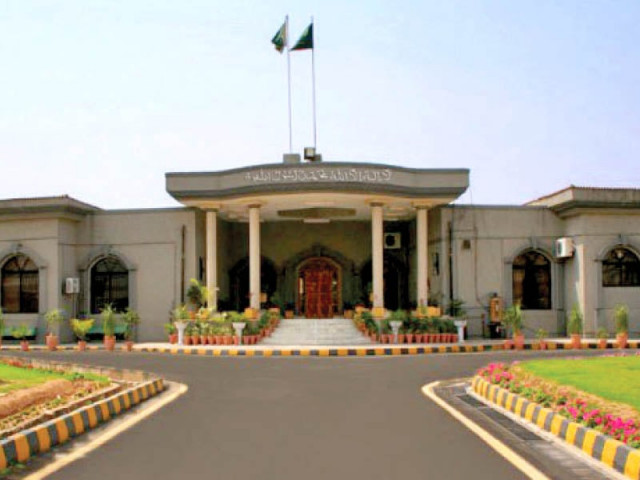Cipher case: Imran challenges his indictment
In his plea, PTI chief tells IHC process carried out ‘in haste’

PTI Chairman and deposed premier Imran Khan on Wednesday moved the Islamabad High Court challenging his indictment in the cipher case, arguing that it was carried out in haste.
The PTI chief, represented by his lawyers Salman Safdar and Khalid Yusuf, in his petition named the State through the Attorney General for Pakistan’s office and interior ministry’s secretary Yousuf Naseem Khokhar as respondents in the case.
Imran in his plea contended that as per the law, charges could only be framed seven days after the distribution of the case copy -- a requirement seemingly overlooked by the trial court.
On Monday this week, Judge Abual Hasnat Muhammad Zulqarnain of a special court -- formed to hear cases under the Official Secrets Act – had indicted the PTI chief and his fellow party leader, former foreign minister Shah Mahmood Qureshi, in the cipher case as both of them pleaded 'not guilty'.
In his petition filed in the IHC, Imran pointed out the absence of a directive from any superior court to expedite the trial or to conduct daily proceedings.
“The trial is clearly progressing, violating and compromising settled principles of ‘criminal law’ resulting in [a] grave miscarriage of justice,” it read.
He added that the judge in “sheer haste, compromising fair trial and procedure, proceeded to frame charges against the accused despite serious objections and pendency of applications” filed before the court.
“There seems to be a clear rush and haste on past of learned trial judge to hurriedly frame charges and conclude [the] trial. This contention holds appeal especially in light of the fact that [the] challan has only recently been submitted in court, and there is no direction” for its early conclusion or for conducting daily hearings by any superior court.
The PTI chairman argued that rushing the trial could infringe upon his fundamental constitutional rights.
The petition stated that the special court had framed the charges under Section 5 of the Official Secrets Act, which was in “blatant and brazen violation” of the law.
It continued that the PTI chief’s “secret arrest” followed by a “secret remand” and the haste in indicting him were “clearly indicative of erroneous approach and understanding of practice and procedure” while adjudicating on the cipher trial.
The former prime minister further maintained that the lack of central evidence, particularly the cipher telegraph, had been overlooked.
The petition added that the judge had committed a “gross illegality” by framing charges in the absence of the main documentary evidence.
The plea read that the framing of charges would be “pointless and futile” when the nucleus of the prosecution case, the cipher telegram, was not part of the challan.
Therefore, the PTI chief requested the IHC to declare the “hasty exercise” of framing of charges to be “illegal, unlawful and against the settled principles of the Code of Criminal Procedure”.
He also asked the court to declare the exercise in violation of Article 4 (due process) and 10-A (right to fair trial) of the Constitution.



















COMMENTS
Comments are moderated and generally will be posted if they are on-topic and not abusive.
For more information, please see our Comments FAQ